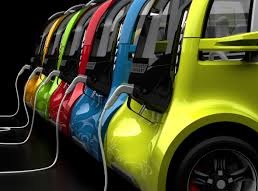 Most motorists will switch to electric vehicles because of their favorable economics, according to transportation experts, who therefore expect federal and state taxes on gasoline and diesel fuel to evaporate. The U.S. collected $44 billion in fuel taxes in 2015, according to the Tax Policy Center. “I think we’ll see a coming rapid shift to electric vehicles,” said Edward J. Regan of the consulting firm CDM Smith. Declining battery costs that are coming down very rapidly, increasing battery capacity—the cost of owning a fully electric vehicle will now match an internal combustion engine, especially on a life cycle basis, by 2022 or 23. This will just tangentially also have a major impact on how we fund transportation because it will likely lead to the demise of the gas tax.” “Electric vehicles have a lot of potential benefits in terms of reduced emissions,” said Chris Kopp, the transit group director at HNTB. “They are probably going to require planners to start thinking about power-grid changes. But the big impact, for those who are ultimately figuring out how to spend transportation funds over the next 20 to 30 years, is what effect this has on our existing transportation sources, primarily the gas tax. Forbes
Most motorists will switch to electric vehicles because of their favorable economics, according to transportation experts, who therefore expect federal and state taxes on gasoline and diesel fuel to evaporate. The U.S. collected $44 billion in fuel taxes in 2015, according to the Tax Policy Center. “I think we’ll see a coming rapid shift to electric vehicles,” said Edward J. Regan of the consulting firm CDM Smith. Declining battery costs that are coming down very rapidly, increasing battery capacity—the cost of owning a fully electric vehicle will now match an internal combustion engine, especially on a life cycle basis, by 2022 or 23. This will just tangentially also have a major impact on how we fund transportation because it will likely lead to the demise of the gas tax.” “Electric vehicles have a lot of potential benefits in terms of reduced emissions,” said Chris Kopp, the transit group director at HNTB. “They are probably going to require planners to start thinking about power-grid changes. But the big impact, for those who are ultimately figuring out how to spend transportation funds over the next 20 to 30 years, is what effect this has on our existing transportation sources, primarily the gas tax. Forbes
